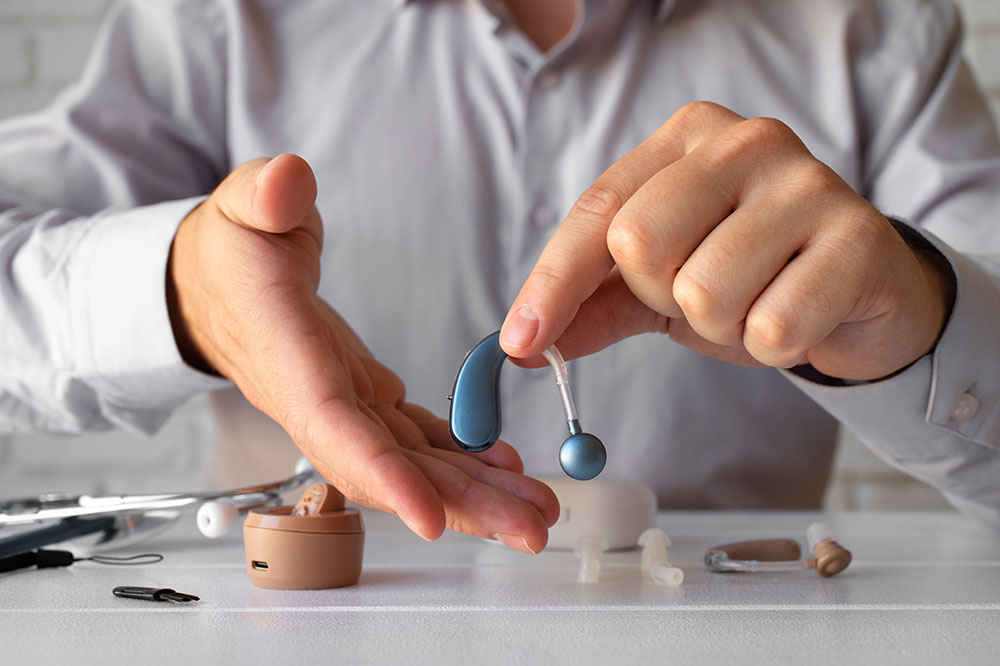5 Aspects to Consider Before Buying Hearing Aids

Hearing aids are devices specially designed for the needs of people experiencing hearing loss. Selecting the correct type of hearing aid can significantly improve a person’s hearing and lifestyle. They offer voice clarity and better communication and help such patients during social interactions. But before buying a hearing aid, one should consider some factors that will make a choice easier. It is even more important to consult a professional on what you should look for.
Type of hearing loss
Primarily, hearing loss is categorized into two types – conductive and sensorineural. Conductive hearing loss is often caused by fluid buildup in the ear canal, accumulation of earwax, physical blockage, or some form of malformation in the outer or middle ear. Since the causes of this type of hearing loss are easier to manage, it can be corrected without any serious concerns with the help of surgery. On the other hand, sensorineural hearing loss is caused by damage to the inner ear or the hearing nerve. In this case, patients should adapt to using hearing aids to help them improve their hearing capacity. The choice of hearing aid will depend on the severity of hearing loss, and the doctor will recommend a device accordingly.
The physical condition of the ear
Another important factor when considering your choice of hearing aids is the physical characteristics of your ear matter. One must consider things like the size and shape of the ear canal. It would be best if you look for a hearing aid that is a perfect fit. Since most people have big enough ear canals, an in-the-canal hearing aid is recommended. However, for people with smaller ears, the use of behind-the-ear hearing aids is encouraged. Some might even prefer using custom-made devices suitable to the patient’s ear size and shape. It also helps that technological advancements have made it possible for hearing aids to be small in size, which helps meet the concerns of people who are worried about their appearance. It is also possible to get aids that match one’s skin tone.
Technology
Different hearing aids are known for covering many technological features, including dust resistance, heat resistance, and waterproofing. Some even cover factors like tinnitus cancellation, advanced noise cancellation, and remote or Bluetooth connectivity. Some come with a smartphone application that lets you control or adjust your hearing aids with a few taps. Hearing aids with advanced features offer Bluetooth call acceptance and music control. The kind of hearing aids you choose depends highly on your usage and the environment you are in. For people constantly in places with a lot of noise, speech-focused hearing aids will greatly help. However, on the other hand, people who spend their time in a quieter environment with a hearing aid with basic functions will do the job just as efficiently.
Budget
Hearing aids are a pricey business, costing upwards of $800 for a single earpiece; however, this is just an introductory price. The higher you go with technology and features, the more you will have to pay for the pair. If you choose to go the custom way, you must be prepared to pay a higher price for customization. Also, Medicare does not cover the cost of hearing aids, although some private health insurance providers might cover the cost partially. However, that is a case-sensitive decision. It is, therefore, important to consider your budget if the possibility of being covered by insurance is low. Of course, spending a steeper price would also not make sense if your lifestyle and environment do not demand a high-end hearing aid purchase.
Usability
Owing to their small-size handling, hearing aids might prove to be tricky for some people. They are sometimes challenging to take off or put back on. People with visibility issues may find replacing batteries or charging devices challenging. Arthritis is another such issue that can make handling small hearing aids a problematic task, although a few convenient options are available. For aged patients or ones with the possibility of finding the device difficult, it is advisable to use hearing aids that support auto-control features.
Top hearing aid companies
Many companies boast the best hearing capacity with their hearing aids. But, more importantly, it is crucial to consider your expectations and needs from the hearing aid. Consult an audiologist or a health expert to know the kind of improvement in your hearing ability you can expect. Also, consider long and hard about the kind of features you want to be covered. There are a few brands commonly recommended by professionals, and are worth checking out.
Oticon
Oticon is one of the most well-known hearing aid manufacturers and has won numerous accolades for its technical expertise. They make hearing aids for people with mild to profound hearing loss and even have assistance devices for people with single-sided deafness. You can even answer calls, stream audio from your TV directly to your hearing aid, focus on relevant sounds, and make some adjustments with a dedicated smartphone application.
Phonak
Phonak caters to the hearing needs of everyone right, from toddlers to seniors. Some key features in their devices include child-friendly designs, noise cancellation options, sound distortion management, voice assistance options, and the ability to block wind and other background noises. Phonak’s Lyric is a device inserted deep in the ear canal and can be worn for months at a stretch without having to take it off during showers and sleep.
Signia
Signia is an excellent option for people with mild to severe hearing loss. It comes with Bluetooth connectivity, fast charge and on-the-go charging options, customization of volume and quality of background noise, noise filtration, and more. Signia is also known for offering some of the smallest hearing aids.
ReSound
No matter the type of hearing loss you are dealing with, ReSound has a solution for you. It covers basic requirements like Bluetooth connectivity, speech clarity (even in windy or noisy environments), device adjustments with remote assistance, and low distortion. ReSound ONE is one of the brand’s finest devices; it even helps you identify the direction the sound is coming from.






